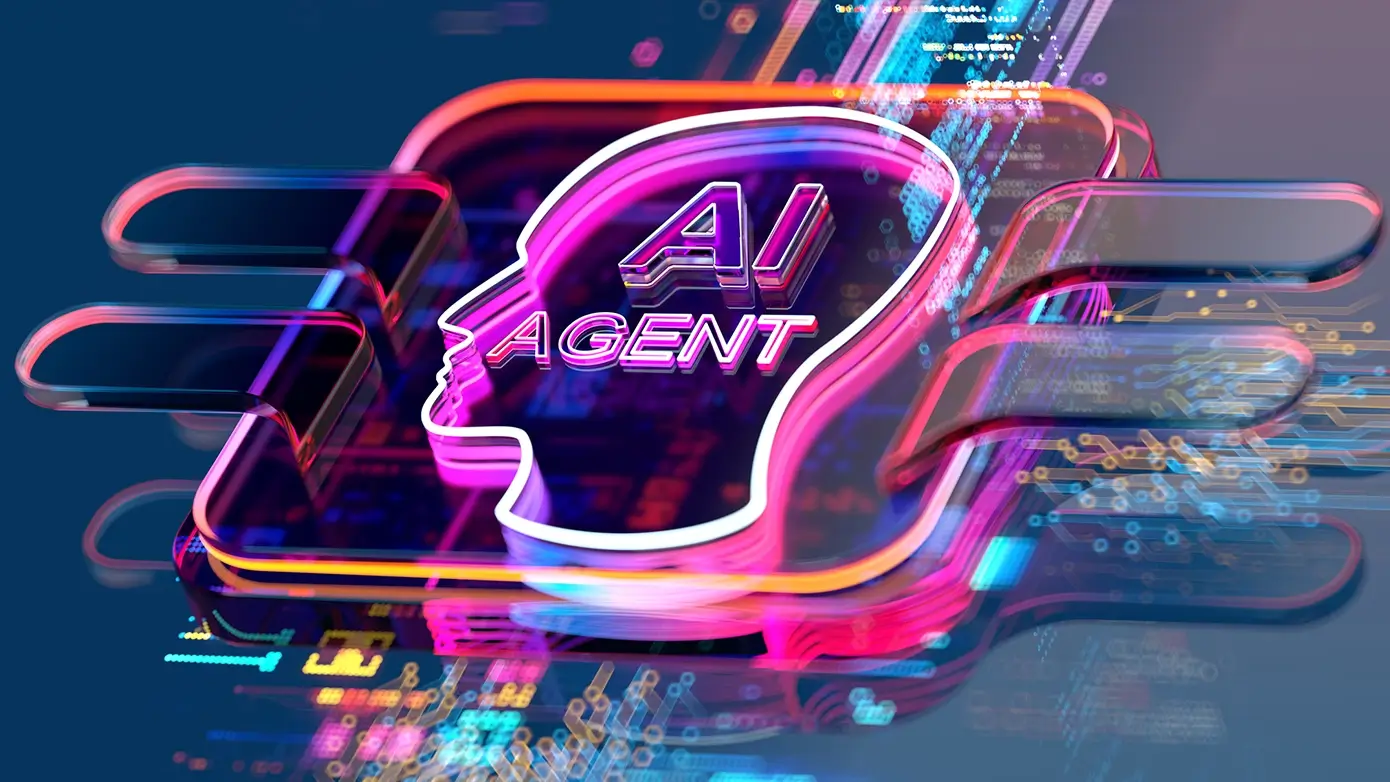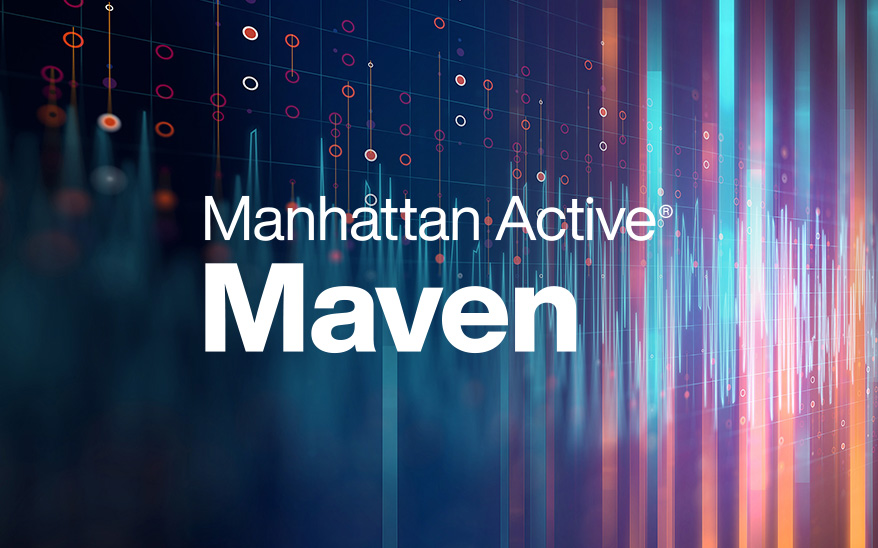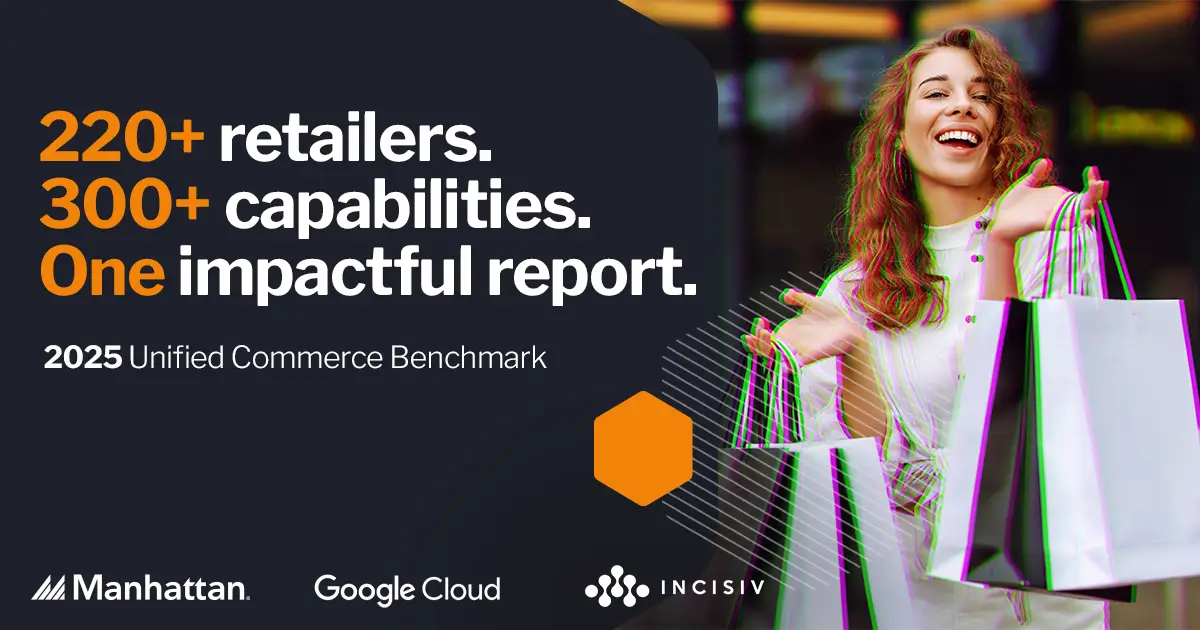Reimagining Supply Chain Commerce: How Agentic AI Is Shaping the Future
- August 12, 2025
- Manhattan Staff
- 3 minutes
.webp/Zz0zYTc3YzA1MjM1MmQxMWYwYWVmMjhhMGY3NDE5ZmNlYQ==&width=730&height=410)
Key Takeaways
- Evolution of AI: Agentic AI can observe and analyze its environment, take actions, execute tasks, and make decisions based on contextual knowledge.
- Digital Co-Workers: With intelligent digital co-workers there is a clear opportunity to enhance productivity by automating tasks such as load planning, flagging inconsistencies, and suggesting corrections, ultimately saving hours of manual review.
- AI as a Complement, not a Replacement: While AI plays a critical role in supply chain functions, it is not replacing traditional supply chain mathematics. Instead, it complements established algorithms making systems more accessible and efficient.
In today’s fast-paced world of supply chain commerce, staying ahead of the curve requires more than just operational efficiency - it demands a bold embrace of innovation. A trending topic that is top of mind for all is how artificial intelligence (AI), specifically Agentic AI is reshaping the landscape of supply chain technology.
In May this year, Sanjeev Siotia, CTO, Manhattan joined Georgia Tech Professor for Industrial Engineering, Alejandro Toriello to discuss how AI is being embedded across supply chain functions - from forecasting to fulfillment - and what that means for the future of commerce. Here are some key takeaways:
From Generative to Agentic AI: What’s the Difference?
Most people by now are familiar with Generative AI (Gen AI) - tools like ChatGPT that respond to prompts with natural-sounding text. However, as Sanjeev explained, these systems are essentially "stateless." Each prompt is treated as a standalone interaction, even if it looks like an ongoing conversation.
Enter Agentic AI. Rather than just generating responses, Agentic AI operates using a "think, see, do" model. The “think” component is powered by large language models (LLMs), like those used in Gen AI. The “see” refers to the system’s ability to observe and analyze its environment. The “do” is where the true power lies - agents who can take actions, execute tasks, and even make decisions based on contextual knowledge. ,
Simply put, Agentic AI isn’t just about responding to queries. It is about enabling autonomous, task-oriented behavior that mirrors how humans work.
The Rise of Digital Co-Workers
Recently, Manhattan announced sweeping Agentic AI support within Manhattan Active® solutions that includes intelligent, autonomous digital agents to revolutionize supply chain commerce execution, optimization, and user experiences.
Sanjeev provided a compelling example of how agentic AI can enhance productivity: load planning. In traditional logistics operations, load planners manually verify shipments, relying on tribal knowledge to identify patterns. Now, Agentic AI can absorb this knowledge and serve as a personalized assistant, flagging inconsistencies, suggesting corrections, and ultimately saving hours of manual review.
This is the promise of agentic AI: creating intelligent digital co-workers who understand roles, follow instructions, and make independent decisions. They can even collaborate - multi-agent systems can combine specialized knowledge (e.g., tech, marketing, logistics) to tackle more complex tasks.
AI Is a Tool, not a Replacement
While AI plays a critical role, Alejandro reminded that AI isn’t replacing traditional supply chain mathematics. Rather, it complements it. Established algorithms for inventory management, forecasting, and optimization are still relevant. The value of agentic AI is its ability to orchestrate those tools, choosing the right one for the right job at the right time.
It also redefines how users interact with software. Instead of clicking through complicated interfaces, users can simply ask, “Where’s my shipment?” and receive a clear, actionable answer. This natural language interface reduces the need for specialized training and makes enterprise systems more accessible to a broader workforce.
Benefits of Agentic AI in Supply Chain Commerce
So where will businesses see the biggest impact? Sanjeev outlined four key areas where Agentic AI is poised to deliver measurable value:
- User Experience
AI can transform the user interface from rigid systems to intuitive, conversational tools. Whether it's a warehouse manager or a planner, users can now engage with software more naturally using plain language rather than technical know-how. - Time to Implement
Traditionally, implementing enterprise solutions involves translating business requirements into technical configurations - a process that can be slow and error-prone. With AI, this translation can be automated, reducing implementation time and effort. - Productivity
AI can automate repetitive, time-consuming tasks. From analyzing reports to identifying shipment issues, agentic AI frees employees to focus on higher-value activities, increasing overall productivity. - Data Insights and Analytics
As LLMs grow more sophisticated, they can offer richer insights from vast data sets. Users can dynamically generate detailed reports, summaries, and visualizations simply by asking questions—no need to build custom dashboards for every scenario.

Why Manhattan’s Platform Is Built for the Agentic Future
Not all systems are created equal when it comes to AI integration. Manhattan invested early in building a robust, API-first architecture, enabling agents not just to “see” data but to take actions based on it.
Acting on data isn’t just about insight—it’s about execution. Whether adjusting shipping plans, notifying vendors, or triggering alerts, agents need safe, validated access to core systems. This is where Manhattan’s modern platform gives it an edge. It’s designed to let agents operate within guardrails, ensuring data integrity while unlocking automation at scale.
Building Agents: Easier Than You Think
To make it easier for teams to get started, the company introduced Manhattan Agent Foundry™, a toolkit for building, testing, and deploying agents. Users can start from templates, modify existing agents, or even use AI to build new ones—yes, agents that build agents.
Sanjeev encouraged users to just dive in. “Don’t be afraid of it,” he says. The system’s structure prevents errors, so users can experiment safely and learn through experience. Alejandro adds that growing familiarity helps reduce hesitation and builds trust—especially as agents become better at explaining their decisions.
The Next Generation: AI Natives
Alejandro pointed out that today’s students, soon to be tomorrow’s workforce, are becoming “AI natives.” Much like digital natives grew up with the internet, AI natives will see tools like agentic AI as second nature. This shift is already transforming education. Rather than focusing on rote techniques, universities are emphasizing critical thinking, problem-solving, and how to best collaborate with AI tools.
Conclusion - AI is a Technological Inflection Point
AI isn’t just a passing trend. As Sanjeev noted, it’s a clear inflection point, much like the internet, mobile, or cloud computing before it. Whether we like it or not, AI is becoming an inseparable part of our work and lives.
The takeaway? Start now. Experiment. Learn. Build. Agentic AI is here to stay, and it’s not just enhancing supply chain commerce, it’s redefining it.
To view the entire discussion, please click here.
Related Assets

What is Agentic AI?
Manhattan has announced support within its solutions for the creation, management, and deployment of intelligent, autonomous AI Agents.

Agentic AI in Retail
Explore Agentic AI for retail by Manhattan, revolutionizing retail with cutting-edge AI solutions. See how Agentic AI enhances operational efficiency and customer experiences.

Manhattan Active® Platform
Iterating and innovating at top speed, Manhattan Active® Platform is a foundation for supply chain commerce that is cloud native, evergreen, and extensible.





